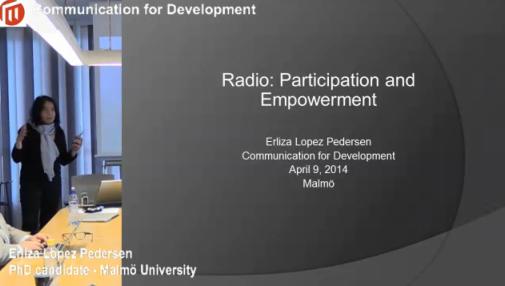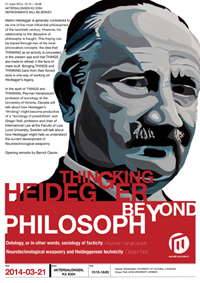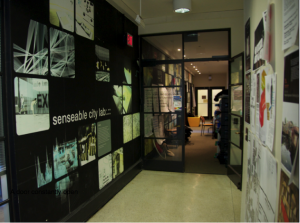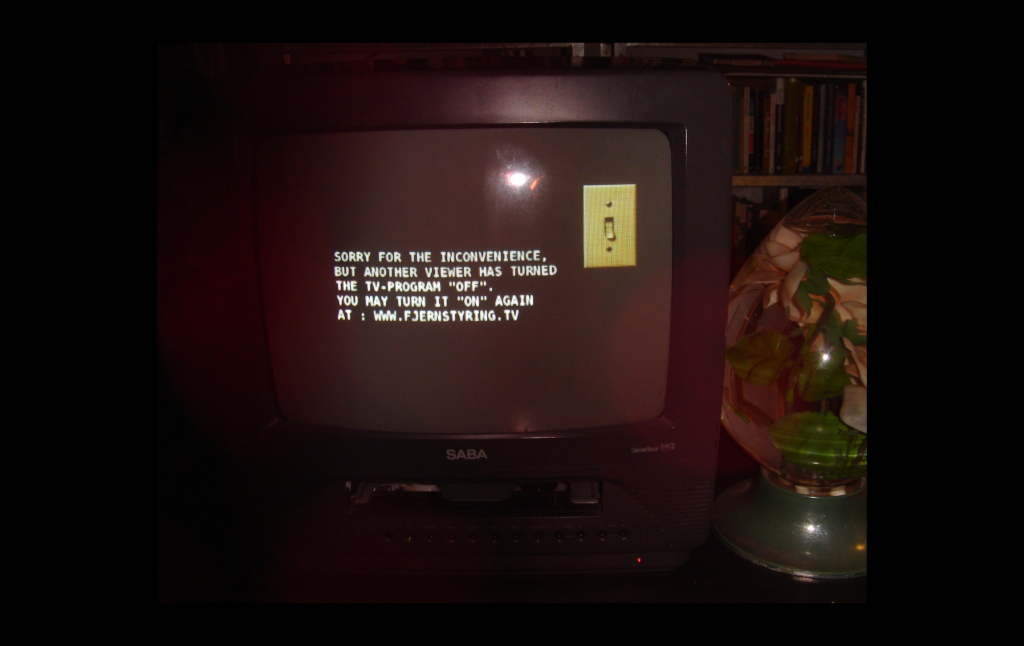This term, the K3 staff arranges three seminar series: apart from the K3 seminar series, we have two series of research-group-specific seminars in and around K3: the “Kultur-Samhälle-Politik” seminar series and the K3 Heritage research seminars. Read about them and how to participate below.
K3 seminar series
Welcome to K3’s seminar series for the autumn term of 2024! The seminar topics this term are distributed between K3’s four research environments: Design, Media, Storytelling and Arts-based Research. In addition, we host joint K3 seminars on broader topics concerning the whole department.
The Zoom link for online/hybrid seminars (unless stated otherwise) is:
https://mau-se.zoom.us/j/62522949096
Meeting ID: 625 2294 9096
K3 Heritage research group seminars
We are a group of people in K3 who share an interest in broad issues and questions about heritage. The group is open and welcomes everyone to attend single seminars or all seminars, or any of the other activities of the group.
The seminar series is intended as a space to present ongoing work, open discussions, and search for shared interests to pursue further research endeavours. The research group has a Teams channel, so anyone interested is welcome to contact Pille (pille.pruulmann.vengerfeldt@mau.se) to keep in contact with the heritage group activities via Teams. The seminar texts will also be shared via Teams.
Kultur-Samhälle-Politik seminar series (in Swedish)
Forskargruppen och seminarieserien Kultur-samhälle-politik är tvärvetenskaplig och öppen för alla som intresserar sig för hur (huvudsakligen estetisk) kultur förhåller sig till andra samhällsområden och för dess politiska dimensioner (i vid bemärkelse). Vi diskuterar och analyserar allt från kulturpolitik till litteratur om global uppvärmning. Gruppen samarbetar nära med Nordiskt nätverk för arbetarlitteraturforskning.
Keep up with us as we announce new topics!
Schedule, Autumn 2024
Aug 20, 13-15, NI:C0826
K3 seminar series [Media]
Fernanda Favaro, PhD student: Brazilian “agrifood” social movement’s communication practices (25% seminar)
Discussant: Tina Askanius
Doctoral student Fernanda Favaro’s project explores the role of social movement communication practices in the construction of the contemporary Brazilian “agrifood” movement’s political imaginaries. In the seminar she shares insights from her first fieldwork trip to Brazil in November-December 2023 and presents a development of the project plan.
Aug 28, 15-17, K3 studio (NI:C0505)
Kultur-Samhälle-Politik
Book discussion: “Re-imagining class: Intersectional perspectives on class identity and precarity in contemporary culture”, ed. Michiel Rys, Liesbeth François
Sep 4, 13-15, K3 studio (NI:C0505)
K3 seminar series [Media]
Another year, another research application
Moderator: Pille Pruulmann-Vengerfeldt & Martina Koegeler Abdi
Welcome to the “Another year, another research application” seminar. In the seminar we discuss different ideas about the yearly cycle of the funders, the plans for future applications as well as ideas for support and encouragement that is possible from Grant’s Office as well as from K3.
Sep 9, 10-12, K3 studio (NI:C0505)
K3 Heritage research seminar
Open event in collaboration with CEMES Libraries, archives, and museums as key pillars of modern European democratic societies? group
We will have two lectures, welcome to join either in person to K3 studio or online via Zoom: https://mau-se.zoom.us/j/62491014667
Casper Hvenegaard Rasmussen: “How Can the Cultural Field Support Democracy?”
Democracy is a highly contested concept, with many different—and sometimes opposing—meanings. In this presentation, democracy is explored from a cultural policy perspective, considering it as rights (access), education/enlightenment (citizenship), public sphere (dialogue), and participation (empowerment).
Krista Lepik-Verliin: “Libraries, archives, and museums as key pillars of modern European democratic societies? But when exactly?”
In this presentation, I will critically discuss the work pace of GLAM professionals in the context of accelerating social time, and technological, political, and social changes. There are several time-related aspects that create temporal paradoxes or dilemmas in the work of GLAM professionals: besides attempting to solve various societal crises (including crisis in democracy), we also need to seek solutions to these temporal paradoxes both on individual and organisational levels.
Sep 11, 13-16:15, NI:B0501
K3 seminar series [Media]
“Creative Media” book chapters discussion
Moderator: Martin Cathcart
Evelina Stenbeck, “Renate Ambient – A New Literature For A New Time”
Allan Haverholm, “Ergodic literature as a creative process”
Sara Callahan, “The light bulb as object, concept and performative practice in contemporary artworks”
Linda Paxling, “Cartography as a creative and critical practice for counter-narratives”
Jakob Friedrich Dittmar, “En-Passant-Media: Self-decoration in textiles, tattoos and other wrappings”
Sep 16, 15-16:30, K3 studio (NI:C0505)
K3 Heritage research seminar
On the Governmentalization of Art: Cultural Policy and the Management of the Racial Archipelago
Berndt Clavier
The MS you will receive a week before the seminar is an exercise in cultural critique. In it, I describe the historical ontology of cultural policy, its reliance on an aesthetic construction of art, and how this combination produces a type of affiliation we recognize as “culture.” I then try to claim that the conception of “culture” available in cultural policy relates to new forms of racialization. I will engage critically with Bourdieu’s idea of the fields of cultural production and try to argue that it is missing a vital layer currently producing what I want to call “racial archipelagoes.” My text consists of four sections: “The Aesthetic Origins of Cultural Policy,” “The Submetrics of Aesthetics and Cultural Policy,” “The Endogenous Dynamics of “Global” Cultural Policy,” and “Cultural Policy and the Emergence of Racial Archipelagoes.” Sections one and two are closely related, and sections three and four are likewise closely related. However, all four sections are necessary to explain how contemporary cultural policy contributes to the racialization of migrants in Europe. It is a work in progress and it has tons of contexts not accounted for in the text: I do not engage directly with Foucault (on which most of the theoretical work on “historical ontology” is based); I do not engage directly with the work of Heidegger and Arendt, which are important philosophical points of departure for my thinking on aesthetics; and I also do not refer to the empirical work that I have done together with Asko, who is not to blame for any of the preposterous things I write in the text you will get (though chances are that if you find something that makes sense to you it is likely the result of discussions with Asko). The chapter is intended as a general introduction to a book on the governmentalization of art and a commentary on the resurgence of racial politics in the twenty-first century and how these politics relate to a contemporary conception of culture.
Sep 18, 13-15, K3 studio (NI:C0505)
K3 seminar series [Arts-based research/Design]
Design Delirium – an attempt at formulating a popularized critique (in the form of a book)
Maria Hellström Reimer
—- English below —-
Design Delirium – ett försök att formulera en populärvetenskaplig kritik (i bokform)
Seminariet presenterar ett pågående projekt att i bokform och utifrån aktuella designexempel formulera en ”civilisationskritik”, det vill säga en kombinerad samhälls- och kunskapskritik. Seminariet kommer att fokusera på erfarenhetsutbyte, och två aspekter står i centrum, dels design som politiskt-ekonomiskt gränsfenomen, dels sakprosa som erfarenhets- och forskningsbaserad uttrycksform. Boken skrivs på svenska men seminariet hålls huvudsakligen på engelska.
—- English —-
The seminar will present an ongoing book project based on highly topical design examples and aimed at formulating a ‘critique of civilization,’ i.e. a combined societal- and knowledge critique. The seminar will focus on exchange of experiences, and two aspects will take centre stage, on the one hand design as political-economic boundary phenomenon, on the other the challenges of non-fictional writing or ‘factual prose’ – in Swe ‘sakprosa’ – as an experience- and research-based form of expression. While the language of the book is Swedish, the seminar will be held mainly in English.
Sep 25, 13-15, K3 studio (NI:C0505)
K3 seminar series [Storytelling]
Efter velfærden. Ny dansk litteratur og reformerne af velfærdsstaten i det 21. århundred
Tue Andersen Nexø
K3-seminaret gästas av Tue Andersen Nexø, som ska presentera pågående forskning om den danska samtidslitteraturens relation till välfärdsstaten. Hans presentation följs av diskussion av en text (ett work-in-progress) av Evelina Stenbeck om Asta Olivia Nordenhofs Djävulsboken.
Sep 25, 15-17, K3 studio (NI:C0505)
Kultur-Samhälle-Politik
Evelina Stenbeck presenterar en text om Asta Olivia Nordenhof, Faust, kropp&själ, poesi, kunskap och prekaritet.
Oct 2, 13-15, K3 studio (NI:C0505)
K3 seminar series [K3 joint]
Accessibility Strategies in Digital Publishing
Elizabeth Ashley Fox-Jensen
“Accessibility Strategies in Digital Publishing” is a seminar designed for teachers, staff, and researchers to explore practical strategies for enhancing accessibility in digital content and publications. Participants will learn about legal and ethical considerations within Sweden, the EU, and the US. They will also explore the rationale for implementing changes and discuss common barriers related to vision, hearing, cognitive abilities, and mobility. The seminar will discuss the POUR principles—perceivable, operable, understandable, and robust—and best practices across various topics, including type treatment, scale, contrast checker, alt text, AI tools, metadata creation and considerations for neurodivergent users. The session includes an interactive workshop component, where attendees will analyse digital content excerpts to identify accessibility issues and propose improvements. This practical exercise aims to reinforce understanding and encourage the application of accessibility principles in their teaching materials and artistic and research-based digital publications.
Oct 9, 13-16:15, K3 studio (NI:C0505)
K3 seminar series [Media]
“Creative Media” book chapters discussion
Bojana Romic, “Hybrid teaching”
Tina-Marie Whitman, “Looking for mushrooms as a metaphor for studying media”
Fredrik Mohammadi Norén, “Biases in AI models for visual analysis”
Mikael Rundberg, “Liveness and immediacy in pedagogy”
Pille Pruulmann-Vengerfeldt, “Autoethnography in media studies”
Oct 14, 15-16:30], K3 studio (NI:C0505)
K3 Heritage research seminar
Uses of heritage
Asko Kauppinen and Carolina Jonsson-Malm
This seminar explores the different ways in which heritage is utilized in contemporary society. We will present research and case studies that examine both the benefits and risks of exploiting heritage for various purposes. The discussion will cover themes such as safeguarding material and immaterial cultural heritage, sustainability, democracy, and the potential of heritage to transform society.
Oct 16, 13-15, NI:C1229
K3 seminar series [Arts-based research/Design]
Monster Lab Workshop on Gothic Practice
Chera Kee (Wayne State University), Erika Kvistad (University of South-Eastern Norway), Line Henriksen (K3), and Megen de Bruin-Molé (University of Southampton)
“As a habitus, the Gothic describes a way of writing, a way of reading, a way of thinking about stories, a way of imagining,” writes Timothy G. Jones. “Perhaps the Gothic is something that is done rather than something that simply is” (2009, p. 127). With this workshop, we explore the Gothic as not only a subject of research, but as something that we as researchers might do – the Gothic as a research method, a creative practice, a habitus. What might it mean for academics, artists, and other thinkers and makers to work in Gothic ways, or to experience their own work as Gothic, with its associations of unsettling power dynamics, intellectual uncertainty, and the potentially dangerous search for knowledge? Come find the ghosts and ghouls in your own work, no preparation needed!
Oct 16, 15-17, K3 studio (NI:C0505)
Kultur-Samhälle-Politik
Annika Olsson presenterar ett bokkapitel om de intellektuella.
Oct 23-25, Hörsal C (NI:B0E15)
Conference
Nordisk arbetarlitteratur IX – Från proletariat till prekariat? Arbetarlitteraturens och klassamhällets förvandlingar (language: Swedish, first day in English)
Book your spot here. Free for K3 staff, SEK125 for external participants.
Oct 29, 15-17, K3 studio (NI:C0505)
Joint RUCARR – K3 seminar
Making politics with the dead: participatory art, activism and black humor
Max Evstropov, artist, founder of Party of the Dead
Oleg Ozerov, artist, activist. Vice president of NGO Vegan Georgia
Åsa Harvard Maare, senior lecturer in visual communication K3
Zoom link: https://mau-se.zoom.us/j/66949548914
This seminar is held at the occasion of the K3 Halloween Exhibition in 2024, which is held in collaboration between Malmö University Comics Hub, K3 Monster Lab and The Party of the Dead. After the seminar, participants on site will be given a tour of the exhibition (which is at that point probably still “in the making”.).
Max Evstropov will give a presentation of the activist art group Party of the Dead from its beginnings in 2017 until now.
Åsa Harvard Maare makes a presentation focusing on the role of participatory art and black humour in the actions of the Party of the Dead.
Oleg Ozerov will talk about his experiences of making art actions with Party of the Dead, as well as within Vegan Georgia.
We count on 3×15 minutes presentations, with time for discussion. Welcome!
Oct 30, 13-15, K3 studio (NI:C0505)
K3 seminar series [Arts-based research/Design]
Arts-based research methods and artist-alliances within climate change, environmentalism and migration studies
Josepha Wessels
My seminar will reflect on work in progress that I have done with respect to using arts-based researcher methods within the topics of climate change, environmentalism and migration studies.
Between 2020 and 2023, within the framework of a research project supported by the French Ministry of Foreign Affairs and the Swedish Research Council, I have employed future visioning workshopping in Sudan together with environmentalists and graffiti artists on documenting the past and visioning the future through collaborative graffiti and environmentalism, alliances with Sudanese artists. A draft paper for this work is attached.
Furthermore, I have employed arts-based methods within migration, within the framework of the research environment “Social institutions, political governance and integration of refugees”, SIPGI, in collaboration with Gothenburg University which runs from 2020-2026. I have used immersive video for fieldwork and collaborative workshops with Syrian refugees in Sweden, Turkey and Jordan. In spring this year, we organized a workshop on this topic with the K3 arts-based research group members, MIM and our partners at GU (Centre for Global Migration). Work was presented about scholarly work, either ongoing or recently completed, where artist-scholars have applied arts-based, or artistic research methods, from body mapping, comics, drawing, video, performance, visual arts, immersive, theatre or music.
This seminar will take place just before my 2-month fellowship at Monash university in Australia, which starts in November. During this period I will work with the Emerging Technology lab, headed up by design and futures anthropologist Sarah Pink. I will focus on writing about the immersive, collaborative and arts-based methodology used in both projects, mentioned above, and its significance for sensory and visual anthropology.
Nov 11, 15-16:30, K3 studio (NI:C0505)
K3 Heritage research seminar
Making of heritage
Magnus Nilsson and Gunnar Krantz lead the discussions, topics include the comic archive and working-class literature archive in Copenhagen Working Class museum. In Swedish.
———
Magnus Nilsson, Mette Kjær Ovesen och Nicklas Freisleben Lund presenterar sitt kommande projekt “Fagpressens glemte litteratur- og kulturhistorie: Arbejderlitteratur, -identitet og -offentlighed i de danske fagblade, 1870-1940”. En text av Magnus Nilsson som inspirerat ansökan kan läsas här: Arbetarrörelselitteraturhistoria?: Mot ett litteraturbegrepp som inkluderar det litterära livet i arbetarrörelsen
Mette berättar om sitt arbete med att gräva fram hittills okänd litteratur av kvinnliga arbetarförattare i fackförbundspressen; Nicklas presenterar projektet, som kommer att genomföras under 2025 och 2026; Magnus ger avslutande kommentarer.
———
Gunnar Krantz, “Solidaroperan”I Malmö hette Konsum Solidar.
Solidar var inte den första kooperativa föreningen i Malmö, men kom att bli den största, tillika näst störst i landet.
Konsumentkooperation, med rötter från Rochdaleföreningen i England prövades för första gången i Malmö 1898 med Kooperativa föreningen Pan, grundad av socialdemokraten Axel Danielsson, med blivande statsminister Per Albin Hansson som springpojke. Efter ett par år räknade Pan tusen medlemmar, med en omsättning på 140.000 kronor och fyra butiker. Föreningen såg ut att gå en ljus framtid till mötes, men plötsligt vände kurvan nedåt och 1904 var konkursen ett faktum. Axel Danielsson dog 1899, endast 36 år gammal. Han hade då hunnit med att översätta Kommunistiska manifestet och grunda tidningen Arbetet. Föreningen Pan överlevde honom med fem år.
1907 bildades Kooperativa Föreningen Solidar av medlemmar från bageri- och konditorifacken. Föreningens mål var ”att till gångbara priser avyttra av medlemmarna tillverkade bagerialster” Solidars första butik öppnades 1908 på Möllevångstorget 5, samma år som strejkbrytarbåten Amalthea sprängdes i Malmös hamn.
(…)
Texten ovan är ett utdrag ur manusarbetet med en tecknad serie om konsumentkooperationen Solidar. Serien framställs sida för sida direkt i tryckpressen, en Risografisk duplikator i A2-format. Den experimentella metoden ingår i ett konstnärligt forskningsprojekt med titeln Autografisk dubbelexponering – den svarta linjens narrativa egenskaper i tecknade serier.
På seminariet kommer Gunnar att presentera den teoretiska bakgrunden till sin metod, samt några färdiga sidor ur denna serie.
Projektet är finansierat av Vetenskapsrådet.
Nov 13, 13-16:15
K3 seminar series [Media], K3 studio (NI:C0505)
“Creative Media” book chapters discussion
Martin Cathcart, “The importance of getting lost”
Anna Arnman, “The monster in the TV set. Monster, media and trustworthiness”
Sara Bjärstorp & Petra Ragnerstam, “LARP as a form of creative media exploring radical empathy”
Kajsa Lindskog, “Pairing, piecing, pacing, pictures”
Reinhard Handler, “Ti esrever dna ti pilf. Doing creative media studies by exploring practices”
Margareta Melin, “Understanding Creative Media from a feminist perspective”
Nov 20, 13-15, K3 studio (NI:C0505)
K3 seminar series [Arts-based research/Design]
Monsters as Methods
Line Henriksen, Pille Pruulmann Vengerfeldt, Åsa Harvard Maare, Oskar Aspman
In this K3 seminar, Monster Lab members Åsa, Oskar, Pille and Line will discuss monsters as methods. They will share some of their recent experiences in working with monsters as research approaches, lenses of illuminating otherwise invisible issues. In this seminar, talking and making will meet, and Line will record elements for the next Monster Lab podcast, while others share their work in progress with monsters.
Nov 27, 13-15, K3 studio (NI:C0505)
K3 seminar series [Media]
Health Care Professionals Vlogging on Social Media
Lina Alhafez, visiting PhD student
In this seminar, I will briefly present the topic of my PhD in terms of the context within which it is occurring: The informational/communication landscape, the motivations, but also the attitudes within the HCP community towards it and how they have evolved in the past 10-15 yrs.
I will then move on to explaining more about my current research on developing an AI assisted tool for sentiment analysis that tries to sketch out a thematic map of trust and skepticism amongst the audience in the content those HCPs are sharing, while baring in mind the unique combination of the types of trust this involves and why it’s important.
Nov 27, 15-17, K3 studio (NI:C0505)
Kultur-Samhälle-Politik
Precarious labour in contemporary literature
Magnus Nilsson
Dec 4, 13-16:15, K3 studio (NI:C0505)
K3 seminar series [Media]
“Creative Media” book chapters discussion
Line Henriksen, Åsa Harvard Maare, Oskar Aspman, Asko Kauppinen & Pille Pruulmann-Vengerfeldt, “Collaborative drawing of monsters to understand structural problems”
Dennis Augustsson, “Video essay as a boundary object”
Ulrika Sjöberg & Carolina Martinez, “Creating child-rights based media in collaborative research”
Pia Jönsson, “Where is the soul in animated characters?”
Erin Cory, “Conviviality and decoloniality in hybrid teaching”
Margareta Melin, “Learning Media in the Borderland between Theory and Practice (Gestaltung)”
Dec 9, 12-17
K3 Heritage research seminar
Heritage group has a half-day seminar off campus.
Dec 10, 15-17, NI:C0826
K3 seminar series [Media]
How Collaborative are Collaborative Media?
Bo Reimer, Jonas Löwgren
In 2013, Jonas Löwgren and Bo Reimer wrote the book “Collaborative Media. Production, Consumption, and Design Interventions”, published by MIT Press. In the book they discussed how with the new forms of digital media, people “formerly known as the audience” no longer only consumed but also produced and even designed media. This phenomenon they termed collaborative media. Through an interdisciplinary research approach that combined the social sciences and humanities traditions of empirical and theoretical work with practice-based, design-oriented interventions, they presented a number of case studies that ranged from small multidisciplinary research experiments to commercial projects used by millions of people.
The book was written at a time characterized by a great belief in the possibilities of collaborative media. Today, in times of centralization and monopolization of digital media, that belief has increasingly withered away. What happened? And how collaborative are collaborative media today? These are the questions this seminar will focus upon.
Jonas Löwgren is Professor of Interaction and Information Design at the Division of Media and Information Technology, Linköping University. Bo Reimer is Professor of Media and Communication Studies, K3, Malmö University.
Dec 11, 13-15, K3 studio (NI:C0505)
K3 seminar series [Arts-based research/Design]
The Trade Wagon
Jenny Grettve
Jenny Grettve gives a seminar in relation to her exhibition in the K3 Open Space, ‘The Trade Wagon’.
Dec 18, 15-17, K3 studio (NI:C0505)
Kultur-Samhälle-Politik
Marie Öhman presenterar ett bokkapitel om eko-kritik.





